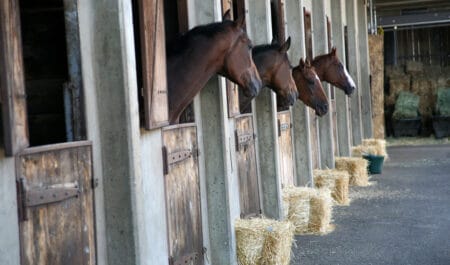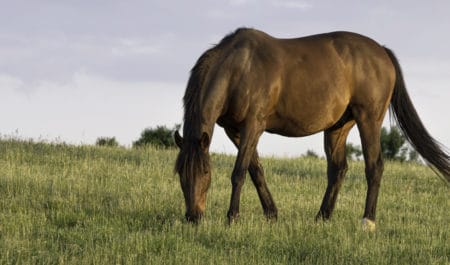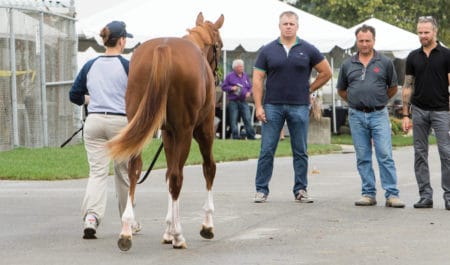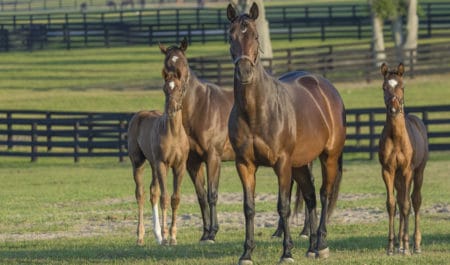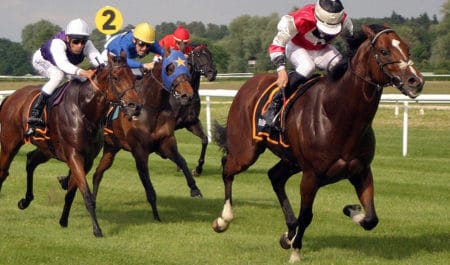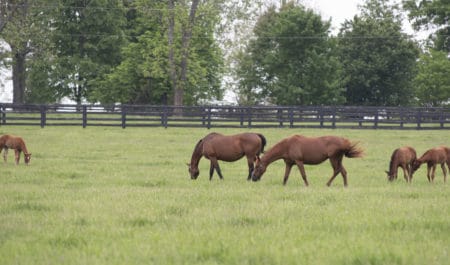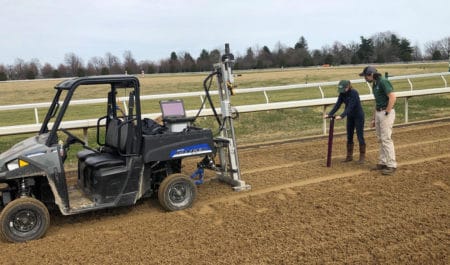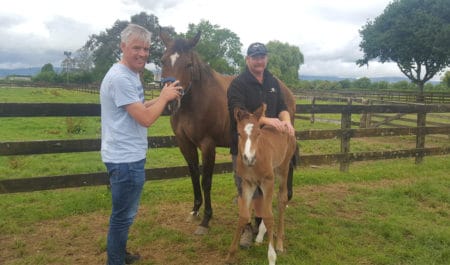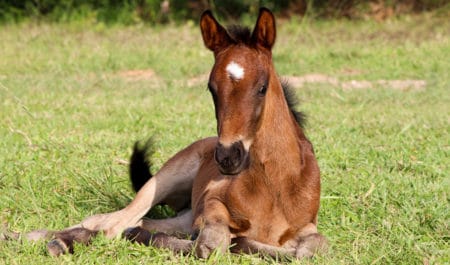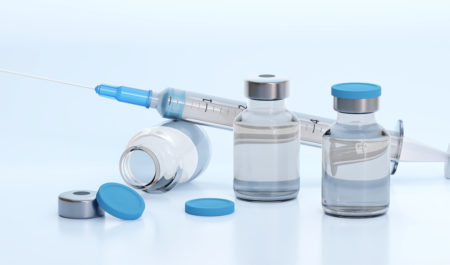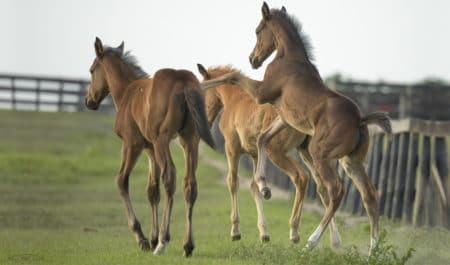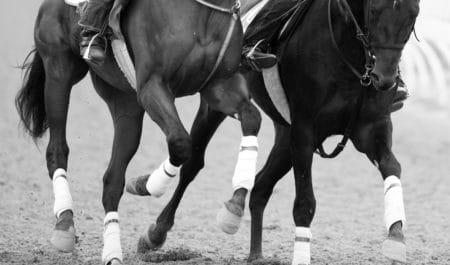Dr. Michael Lindinger, PhD, responds to the article " Why the AGCO Lowered the TCO2 Test Threshold" in order to address a number of issues.
A list of recommendations to consider when thinking about emergency preparedness in relation to flooding and other disasters.
This essential nutrient readily found in green grass may be lacking in hay-fed stabled horses, in which case supplementation is key.
The most significant cause of equine contagious abortion, a comprehensive biosecurity plan is critical to prevent and control outbreaks.
Getting yearlings into the best possible condition involves a careful, conscientious system of handling, exercise, grooming and nutrition.
Aligning with most of the racing world was made to ensure fairness, protect horse welfare, and retain CPMA funding for the program.
While it is typical to wean foals at 4-6 months, research indicates that there are steps breeders can take to make the process more natural.
Horses don't normally suffer from coronary artery disease, so "heart attacks" rarely occur, although heart disease can cause sudden death.
Horses consume mainly carbohydrates, but not all carbohydrates are equal. Knowing forage composition can help meet individual dietary needs.
During the University of Kentucky Equine Research Showcase, Mick Peterson, PhD spoke about the Maintenance Quality System (MQS).
At the UK Equine Research Showcase, Dr. Martin Nielsen discussed parasitology relating to young horses and which anthelmintics work best.
This University of Kentucky Equine Research Showcase recap covers nutrition and pasture topics for weanling to yearling horses.
At the University of Kentucky's Equine Research Showcase, David Horohov, PhD, gave a talk on types of vaccines and the responses to each.
A study of Thoroughbred youngsters at the University of Kentucky identified the primary causes of mortality, from disease to injuries.
A promising new pilot study could simplify the stem cell treatment process for ligament and tendon injuries in horses.



